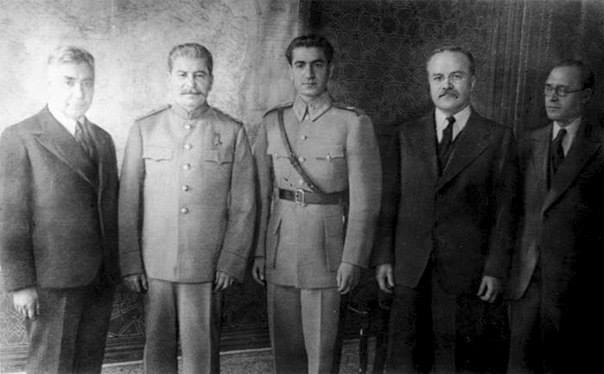 |
| Iran-Soviet Relations |
Well before the 1920s one of Iran's greatest political obstacles was the imperial rivalry between Great Britain and Russia. Both imperial powers felt that Iran was of vital importance to their respective empires, and, spurred by economic interests, the British and the Russian czars followed by the Soviet government vied for influence and control over Iran.
During World War I Iran declared neutrality. When Britain and Russia became allies in the war against Germany, they secretly entered into the Constantinople Agreement, by which they would divide Iranian territory between themselves.
Denied representation at the Versailles Peace Conference following World War I, Iran faced postwar occupation by Britain not only in the south but also in the north after the Bolsheviks overthrew the Russian czarist monarchy and withdrew Russian military forces. Oil, protection of the route to India, and its postwar mandate over neighboring Iraq ensured Britain's continued interest in Iran.
  |
In contrast, the Soviets renounced the czar's imperialistic policies and declared the Constantinople Agreement void. The Soviet regime then recognized Iran's right to selfdetermination and repudiated historic concessions made by former Iranian governments.
During this period Soviet foreign policy objectives varied. Soviet officials wished to establish friendly relations with bordering countries and to oppose Western domination in order to spread the communist revolution. To this end, Iran was of utmost importance, and the new Soviet policy effectively weakened British control over Iran.
Six days before the signing of the Iran-Soviet Treaty of Friendship, a coup led by Colonel Reza Khan overthrew the Iranian government. Khan's rise to power culminated with his accession as shah in 1925 and the founding of the Pahlavi dynasty. Khan's government initially instituted a wide variety of modernizing reforms. As Khan consolidated power his regime became less progressive and more dictatorial.
Relations with the Soviet Union were of considerable concern, particularly as the traditional power struggle between Great Britain and Russia had refashioned itself into a struggle between capitalism and communism. Iran had come to rely on Soviet trade, thus making it vulnerable to Soviet advances. In 1927 Khan negotiated an ad hoc agreement with the Soviets that sought a trade balance and defined terms for bilateral trade delegations.
Iran's relations with the Soviet Union were also complicated by territorial disputes involving the northern region and access to the Caspian Sea. On February 20, 1926, Khan negotiated a treaty attempting to resolve the dispute; the treaty created a joint territorial commission but granted it little power to effect decisions, and the territorial issues remained.
Iran also had problems with foreign interference, and on October 1, 1927, it signed a Treaty of Guarantee and Neutrality with the Soviet Union. The treaty was a nonaggression pact that assured that neither country would interfere in the other's internal operations.
For the Soviet Union the treaty allayed border security fears, but it caused discontent in Iran, which saw it as a continuation of historical external encroachment on its right to sovereignty. After World War II Iran would shift its alliance toward the United States in order to prevent Soviet expansion along the border.